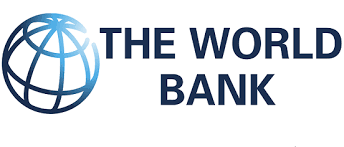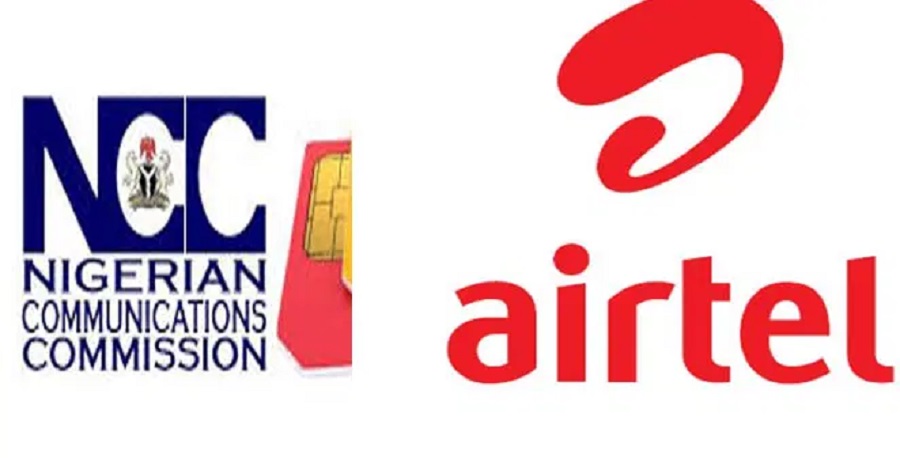Telecom
World Bank, GSMA Partner to Leverage IOT Big Data for Development

Jim Yong Kim, President, World Bank Group announced yesterday that the institution would partner with the GSMA and mobile network operators around the globe to harness big data from the Internet of Things (IoT) to help end extreme poverty and unlock new drivers of economic growth.
The initiative, announced at the GSMA Mobile World Congress 2018 in Barcelona, will unlock new insights from anonymized data collected by mobile network operators through IoT devices and aggregate data from smartphone use. It will also call on industry leaders, development partners and governments to work together in building a strong enabling environment for the IoT while protecting personal privacy.
This is the first broad scope initiative involving the mobile communications industry and a major multilateral development bank, and is convened by the GSMA, which represents nearly 800 mobile network operators and more than 300 companies in the broader mobile ecosystem.
The expansion of mobile networks has created a global infrastructure that generates enormous amounts of data that is invaluable for social and economic development. There are more than 3.8 billion unique mobile subscribers in developing countries; in these markets, more people have access to a mobile phone than to clean water or electricity.
GSMA Intelligence estimates there will be 25 billion connections to the Internet of Things globally by 2025, enabling everything from real-time crop monitoring to water leakage detection. Their rapidly growing use in developing countries can produce a wealth of insights for development work.
“The mobile network industry provides the connectivity that is essential for countries to unlock new drivers of economic growth, help make the global market system work for everyone, and meet the world’s rising aspirations,” World Bank Group President Jim Yong Kim said. “Through this initiative we will partner with the mobile industry to harness IoT, big data and other new technologies to solve the world’s largest challenges.”
“This new initiative with the World Bank Group will leverage the mobile networks that we have built and the services we deliver to address some of the most pressing challenges that our world faces today,” said Mats Granryd, Director General of the GSMA.
“With IoT and big data, we have the ability to provide insights that can be used across a wide range of applications, from agriculture to environmental protection and beyond. We are pleased to be working with the World Bank on this critical initiative and encourage our operator members globally to join in this effort.”
The initiative calls on mobile operators to use data that they collect through their existing IoT services or through new pilots and partnerships to provide insights and analysis to design and improve projects. This can potentially boost development outcomes from World Bank Group projects – in the last fiscal year, the institution committed approximately $62 billion for new projects in middle- and low-income countries.
Operators and governments will also benefit from increased use of big data for development, as it can enable better service provision, creation of new indicators and statistics, and better quality of life for users and citizens in general.
The World Bank Group already has successful examples of applying mobile-enabled IoT and big data to projects. In India, bangle-shaped sensors – wearable IoT data collection devices – allow users to automatically monitor harmful emissions from their stoves, and the data they generate is helping drive a shift to cleaner cookstoves.
Additionally, the World Bank Group will join the GSMA’s Big Data for Social Good Advisory Panel. The GSMA is a strong supporter of development initiatives that involve mobile networks and is one of the inaugural partners of the World Bank-led Digital Development Partnership – DDP.
Telecom
Airtel Recommits to Fraud Prevention after NCC’s N104m Fine for SIM Registration Breaches

Airtel Nigeria has restated its commitment to transparency, customer safety, and regulatory collaboration following recent regulatory enforcement by the Nigerian Communications Commission (NCC).

The NCC had served Airtel Nigeria a notice of sanction over some alleged SIM infractions in Kano State and consequently slammed a fine of N104 million on the telecommunications firm.
NCC had in a letter, addressed to Airtel Nigeria Chief Executive Officer, dated May 26, 2025, signed by Chizua Whyte, head, Legal and Regulatory Services, and Mohammed Dari, acting head, Compliance Monitoring and Enforcement, on behalf of Dr Aminu Maida, executive vice chairman, NCC, titled: ‘Notice of Sanction: Non-Compliance with SIM Registration Directive in Kano,’ where the infractions were spelt out.
According to NCC, Airtel infractions include unauthorised SIM registrations using 198 unapproved devices, resulting in 8,275 registrations outside the 281 verified Airtel shops; premature activation of 63 MSISDNs prior to proper SIM registration, contrary to the provisions of the Registration of Communications Subscribers Regulations 2022; failure to conduct effective eyeballing, leading to 407 fraudulent SIM registrations with multiple NINs, contrary to the provision of the Registration of Communications Subscribers Regulations 2022 and failure to provide satisfactory explanation for SIM registrations conducted between 12.00 a.m and 6.00 a.m.
On the matter, the letter revealed that there were some letter exchanges and subsequent meetings on the infractions between the telecom regulator and Airtel, starting from January 12, 2025, March 19, 2025, March 24, 2025, and March 27, 2025, respectively.
Apparently, after investigations and responses from Airtel, the NCC was not satisfied and this led to the fine of N104 million, which was to be paid within seven days from the date the letter was issued.
Specifically, NCC fined Airtel N5 million, N12 million, N81.4 million and N5 million for the infractions respectively.
Reacting, Airtel, expressed appreciation to the NCC for uncovering the infractions, describing the development as a critical opportunity to strengthen internal processes and further align with national security and regulatory expectations
“We thank the NCC for its vigilance and continued support in protecting the integrity of the telecoms ecosystem. Airtel takes these findings seriously and is already implementing corrective measures,” a spokesperson for the company said.
Only recently, Airtel Nigeria’s CEO recently announced that the company is doubling its investment in the country, focusing on network expansion, fiber-to-the-street rollout, 4G/5G deployment, customer care upgrades, and digital infrastructure security.
These investments reinforce Airtel’s long-term vision of building a resilient and forward-looking telecom network that meets the evolving needs of Nigerians.
“Our systems are constantly evolving to stay ahead of scammers and malicious actors,” the spokesperson added. “This is not just about compliance; it’s about our responsibility to the millions of Nigerians who rely on Airtel daily.”
Airtel Nigeria says it will continue to work closely with the NCC and other arms of government to ensure high standards of service and safety for all telecom users nationwide.
Telecom
Kenya Beats Nigeria As the Most Progressive ICT Regulation in Africa

Kenya is celebrating its regulatory ecosystem being ranked as the most progressive in Africa. The International Telecommunications Union (ITU) has ranked the East African country first in its most recent ICT Regulatory Tracker.

ITU’s ICT Regulatory Tracker is an evidence-gathering tool for decision-makers and regulators. It demonstrates the effectiveness of regulatory systems in the age of technology.
The ITU evaluates the design of the national regulatory authority, the scope of the regulatory mandate, the obtaining regulatory environment, and the robustness of the competition framework in member countries.
Kenya received 93 points, up from 92 in 2023, and now leads the continent in best practices for ICT regulations.
Nigeria and South Africa finished second and third, with 92 and 88 points respectively. Malawi, Egypt, Rwanda, Morocco, Uganda, Burkina Faso, and Senegal complete the top 10 list.
Globally, Kenya was ranked 20th out of 194 countries covered.Italy led the rankings, with 100 points.
The regulator, Communications Authority (CA) of Kenya, said the achievement underscored Kenya’s commitment to creating a robust, technology-neutral regulatory environment that supports innovation, affordability and access.
Steve Isaboke, permanent secretary for broadcasting and telecommunications, visited CA Centre in Nairobi following the announcement on Thursday.
“The ranking is a clear testament of the excellent work that CA has done in spearheading Kenya’s digital transformation and driving digital access for all,” he said.
“After 25 years, CA’s regulatory regime has attained maturity, and gained global recognition. This ranking shows that the CA staff and leadership are executing their work diligently.”
Telecom
MTN’s Female Leadership Surges to 41.4%, Doubles Industry Average

MTN Nigeria Communications PLC has announced a significant increase in female representation within its leadership, with women now making up 41.4% of its workforce, a notable rise from 38.7% in 2023.

This figure reportedly doubles the industry average, positioning MTN Nigeria as a frontrunner in gender diversity within Nigeria’s ICT sector.
The company’s recently released 2024 Annual Report highlights its sustained commitment to workplace inclusion and gender equality, aligning with its “Ambition 2025” strategy. Female representation within the executive management team has reached approximately 46.7%.
MTN Nigeria attributes this progress to dedicated initiatives aimed at empowering women professionally. These include the “Women in Tech” programme, which provides targeted upskilling in high-demand fields such as Cloud Computing, Software Engineering, AI/ML, Data Science, and Cyber Security.
The “MTN Y’ello Mums Internship Programme” also supports young mothers in their transition back into the corporate world after career breaks.
Odunayo Sanya, executive director of the MTN Foundation, was recognised as the CSI Personality of the Year at the Nigeria Tech Innovation & Telecoms Awards (NTITA), further underscoring the company’s impactful social initiatives.
Additionally, Uto Ukpanah, the company secretary, received the inaugural Global Corporate Secretary of the Year Award from the Corporate Secretaries International Association (CSIA).
Speaking at a recent conference, Odunayo Sanya, emphasised the importance of balancing profitability and sustainability equation, saying, “Businesses today need to be purpose-driven. While the soul of business is profitability, it is not profitability alone that should matter to stakeholders.”
Uto Ukpanah, added, “Showcasing our corporate values and ethos to the world opens the door for greater collaboration with other organisations, as we believe there’s a lot to learn when we all come together. Governance continues to evolve. The challenges today are not the same as they were 10 years ago. Greater accountability is expected, and companies can only continue to do better.”
The company’s broader efforts in diversity and inclusion have been acknowledged with multiple accolades, including the Corporate Responsibility Award. MTN Nigeria also received the “Employer of the Year” award at the 4th Edition of the Nigeria Employers’ Consultative Association (NECA) Employers’ Excellence Awards.
Karl Toriola, CEO of MTN Nigeria, in the report, reiterated the company’s commitment to building a purpose-driven organisation, emphasising that its success is intrinsically linked to its people and their dedication to a shared vision.
“Since we initiated our culture transformation journey in 2021, our culture transformation has significantly enhanced employee engagement and organisational cohesion. It’s directly strengthened our ability to deliver outstanding business performance and drive sustainable long-term value for all our stakeholders.”

 Telecom2 days ago
Telecom2 days agoAirtel Recommits to Fraud Prevention after NCC’s N104m Fine for SIM Registration Breaches

 E-Financial3 days ago
E-Financial3 days agoPalmPay Seeks $100m Funding Round

 Telecom2 days ago
Telecom2 days agoMTN’s Female Leadership Surges to 41.4%, Doubles Industry Average

 Telecom3 days ago
Telecom3 days agoAnambra Cracks Down on Illegal ISPs, Cites Security, Service Concerns

 News3 days ago
News3 days agoFBI Busts Alleged Cyber Fraud Ring Led by Nigerian ‘Tech Queen’

 E-Business3 days ago
E-Business3 days agoNIMC Denies Blocking Police Commission from Verification Server

 News3 days ago
News3 days agoNOTAP Boss Laments Loss of IPR by Nigerian Researchers

 Broadcasting2 days ago
Broadcasting2 days agoNCC Warns DJs: Playing Music Without License Could Lead to 5-Year Jail Term



























